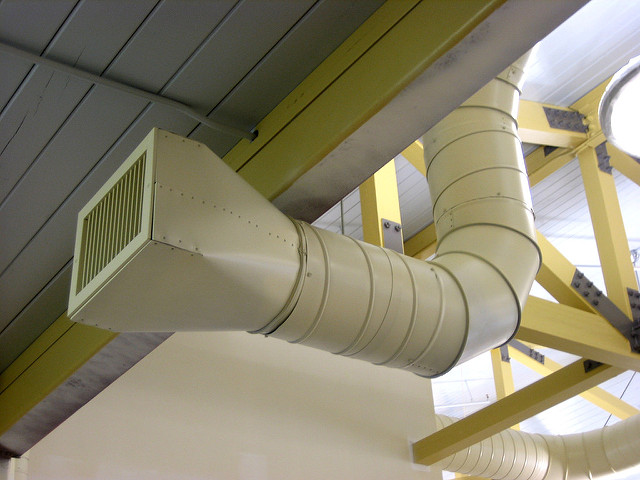
You want to feel warm and cozy when the temperatures drop. At the same time, you don’t to take a deep hit to your bank account when the power bill arrives. When shopping for a new furnace, it is wise to consider the fuel sources they use. While some swear by gas furnaces, other contest that oil is best. In the end, both types of are good at making your home feel comfortable. Knowing the advantages and drawbacks of each will help you make an educated decision based on your needs and budget.
Efficiency Ratings
In the U.S., heating and cooling costs account for nearly 50 percent of the energy use in a home, according to the U.S. Environmental Protection Agency. Before shopping for gas or oil furnaces, keep in mind that the Annual Fuel Utilization Efficiency (AFUE) rating is one of the most important factors when selecting a heating system. The rating indicates the efficiency of the furnace’s combustion. Furnaces with higher AFUE ratings are more efficient. An appliance with a 60 AFUE rating will not yield any energy savings, while those with a 90 AFUE can save about 29 percent on heating costs. Bear in mind that in addition to AFUE ratings, gas and oil prices also affect energy costs.
Gas Furnaces VS Oil Furnaces
Gas Furnaces
- Cost: Gas furnaces are generally 10 to 25 percent more expensive than oil furnaces. Installation prices are similar for both types of appliances. If a municipal gas line does not already run to your home, you must pay to install one.
- Efficiency: Most new gas furnaces have AFUE ratings of 89 to 98 percent. Gas is a clean-burning fuel and the cleanest nonrenewable energy source. The full environmental implications of hydraulic fracturing remain unknown.
- Space considerations: If you don’t have a chimney in your home, you many need to install one. Alternatively, you may need to purchase a furnace that you can install near an exterior wall so it vents directly outside, bypassing the chimney.
- Size: Gas furnaces have a smaller footprint than oil furnaces because they don’t require a fuel storage tank.
- Safety: Without proper maintenance and monitoring, gas furnaces carry a risk of leaking dangerous carbon monoxide into the home. Gas leaks endanger occupant health and are explosive.
- Lifespan: Up 25 years with proper maintenance.
- Ease of maintenance: The furnaces tend to be simpler and less expensive to maintain than oil furnaces because they stay cleaner during the heating season. The heat that gas furnaces produce is not as hot as oil furnaces when measured in British thermal units.
- Other considerations: Gas furnaces hook up to a municipality’s infrastructure via an underground pipeline. Not all neighborhoods have gas lines in them. Natural gas is highly available and less volatile than oil in regards to cost.
Oil Furnaces
- Cost: Oil furnace units tend to cost less than their gas counterparts do, but oil prices tend to be more volatile than natural gas prices. Oil also tends to be more expensive than natural gas because it is often imported.
- Efficiency: Most new oil furnaces have AFUE ratings of 80 to 90 percent, but generally produce fewer emissions than gas furnaces.
- Space considerations: Because oil furnaces manage high temperatures well and get hotter than gas furnaces, they heat large spaces evenly. Incidentally, they are great for homeowners in regions with frigid temperatures that dip into the single digits. Like with gas furnaces, if you don’t have a chimney in your home, you many need to purchase a furnace that you can install near an exterior wall so it can vent directly outside.
- Size: Oil furnaces require an on-site storage tank in an accessible area of the home and regular oil deliveries. As a result, the heating system has as larger footprint than a gas furnace.
- Safety: An oil furnace does not leak carbon monoxide into the home. While it is flammable, oil is not explosive.
- Lifespan: Up to 30 years with proper maintenance.
- Ease of maintenance: Gas furnaces tend to require more maintenance because of soot and dirt buildup. In addition to maintenance, you will also have to pay for the cost of oil deliveries, oil changes, and oil filter changes.
- Other considerations: If the furnace heats water, you will have to run it year-round. An oil furnace may be more convenient if you live in a remote area because it doesn’t require a direct connection with local utilities. Oil-fired furnaces may be noisier than gas-fired ones.
A new furnace is a major investment in your home and warrants careful consideration. Determining the best type is not a process that you have face alone. Get in touch with AAA Heating and Cooling today to schedule a complimentary consultation. During the visit, you’ll receive expert guidance regarding the types of heating systems that best serve your needs while maximizing efficiency and comfort.